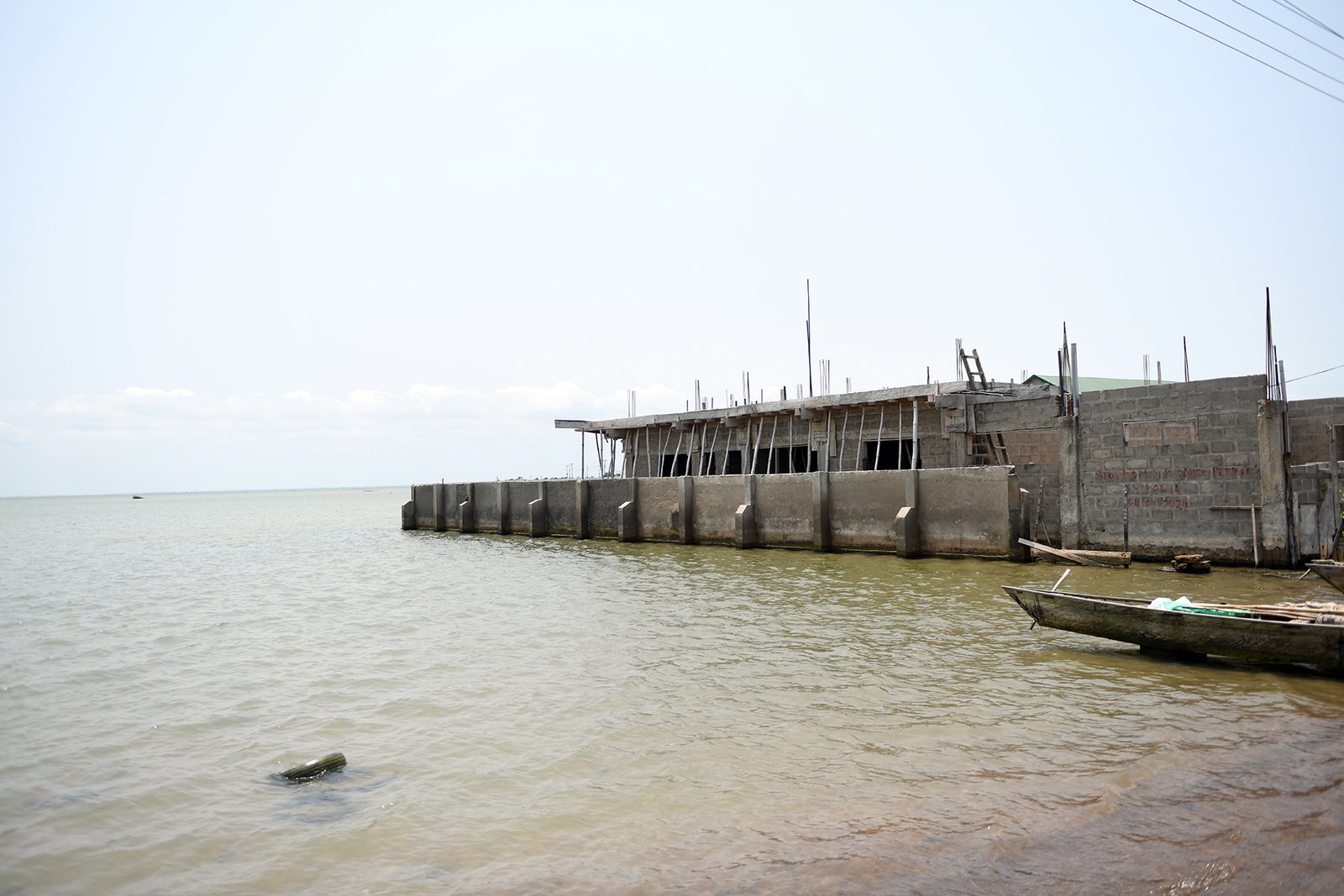News
AJ’s Help The Needy Project donates to widows in Okere District

AJ’s Help The Needy Project has donated assorted food items to widows in Deveme in the Okere District of the country.
It was aimed at supporting the vulnerable women and assuring them of the NGOS’s love and care.
The donated items included bags of rice, oil, boxes of mackerel, biscuits and some soft drinks.

Founder of AJ’s Help The Needy Project, Anita Opoku-Appiah said donating to vulnerable groups, especially widows had been her heart desire due to the stigmatisation and hardship such people face in some communities.
“Women go through a lot and the plight of poor widows is quite enormous. Some of them have challenges of taking good care of their children after their husbands die. This is heartbreaking and the reason we have taken it upon ourselves to support such persons occasionally,” she added.
She also urged the public to desist from taking widows through cruel widowhood rites, which are common in many rural areas.
Wrong accusations of widows, she said, should also not be encouraged.
The widows, receiving the items tanked the NGO for the generous act and hoped for more of such support as often as possible.
The main aim of the AJ’S Help The Needy Project is to make generous donations to the less privileged in the society especially, orphans and widows to help support them make ends meet.
BY RAISSA SAMBOU
News
Swallowed by the Sea! …Keta’s coastal lines, landmarks, efforts to preserve heritage

The Atlantic Ocean is no longer a distant blue horizon for the people of Keta.
It now circles around their doorsteps, uninvited, unrelenting, pulling down walls and other structures, erasing memories, and threatening lives.
Hovering precariously between the restless sea and the Keta Lagoon, this once-thriving coastal town is slowly being obliterated.




Salt water has become both a physical and metaphorical threat, dissolving the town’s past as fast as it claims its future.
Madam Aku Atitso, 62, lives in a crumbling former Prisons Service quarters – one of the few structures still standing on the eroded stretch of Queen Street.


She sits quietly at the entrance, preparing a modest breakfast for herself and her granddaughter.
The air is thick with salt and silence. “The sea took everything,” she says softly. “My husband’s nets, our mattress, our memories all gone overnight.” Her voice trembles. “This place too is dying. But it’s the last place with a roof over my head.”
A few metres away, Aunty Esinam, 79, watches the sea from a low stool beside a wooden shelter. Her eyes do not blink. “That spot,” she points, “used to be someone’s living room, a whole family lived there”.

It’s not just homes that are vanishing. Landmarks that anchored Keta’s cultural identity are disappearing one after another. The once-imposing Fort Prinzenstein, a haunting relic of the transatlantic slave trade is now more of a ruin than a monument.

the encroaching waters along Keta’s
coast.
encroaching waters along Keta’s coast
The colonial-era Bremen factory, the old cinema where generations of children once laughed at flickering black-and-white films is also gone.
Queen Street, once the town’s bustling backbone, is now a watery corridor choked with debris.
Standing atop a section of the sea defence wall, 69-year-old retired teacher Efo Kwasi Agbeko surveys what remains.
“The first police station is mostly gone,” he says, gesturing part of the building stuck in the sea sand, only ruins and a few rooms remain.

“This town is fighting, but the sea is winning,” he said.
Even the Cape St. Paul Lighthouse, Keta’s historic sentinel, leans perilously toward the water, and fishermen say holes in the shore are opening more frequently, sometimes every week.
That leaves a thick cloud of uncertainty hanging around the historic town of Keta.
Once upon a time, it was a vibrant town noted for business but currently left with ruins with a few of the residents watching in awe the sea’s devastation.
From: Geoffrey Kwame Buta, Keta, Volta Region
News
Ghanaians climax Easter with fun-filled activities

Christians around the world and other faith based groups last Monday climaxed the Easter celebration with a number of fun-filled outdoor and indoor activities.
With streets empty, fun seekers stormed church premises where picnics were held while others partied in many ways.
Others spent the day at the various beaches and music and film shows occupying the others.

velleyball competition

at the Laboma Beach
Church in Tema Community 8 engaged
in a number of activities including the
popular draught competition
At the churches, participants engaged in bible reading, football, volleyball, playing cards, table tennis, horse racing, bouncing castles, swimming and oware.



one of the picnic venues
Others played ludo, tag of war, lime and spoon, draught, music competitions among others.
The Spectator captured some of the exciting scenes around Accra-Tema for the benefit of readers.
Story & pictures by Victor A. Buxton







